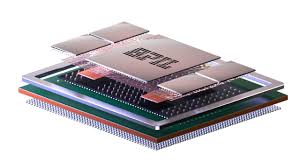On Thursday, Siliconware Precision Industries Co. opened a new plant, strengthening Taiwan’s crucial position in manufacturing cutting-edge semiconductor chips used in artificial intelligence.
Jensen Huang, CEO and co-founder of California-based Nvidia Corp., a global leader in AI chip design, attended the opening ceremony for the Tan-Ke facility in the central city of Taichung, reaffirming the firms’ collaboration in the manufacturing of cutting-edge AI chips.
SPIL is leading the way in semiconductor testing and packaging.
“The technology we are developing is getting increasingly complex. Given the increasing complexity of chips, packaging technologies will also need to advance. What’s even more fascinating is the integration of silicon photonics, enabling us to connect numerous packages into one enormous system,” Huang said.
He claimed that Nvidia and SPIL’s collaboration would be crucial to advancing innovation in the years to come.
Huang also discussed the wider ramifications of AI development, stating that Taiwan’s leading electronics industry will greatly benefit from AI and robotics.
The Biden administration has proposed a new framework for exporting advanced computer chips used in AI development, balancing national security concerns with the economic interests of producers and other nations.
Huang also visited Taiwan Semiconductor Manufacturing Co. Ltd., or TSMC, the largest independent contract manufacturer of semiconductors in the world.
Laptops 1000SPIL expressed enthusiasm for the collaboration, stating that Huang’s visit highlights the strong relationship between the two companies.
Making it “harder for China to circumvent existing restrictions that were focused on China” is one of the driving forces, according to Johannes Himmelreich, a professor who studies AI policy at Syracuse University.
The regulation has been criticized by chip companies as being hurriedly drafted and perhaps harmful to the industry.
The rules governing the sale of sophisticated computer chips made in places like Taiwan and South Korea but primarily designed by California firms like Nvidia and AMD could be decided by the incoming Republican administration because the proposed framework includes a 120-day comment period.

















